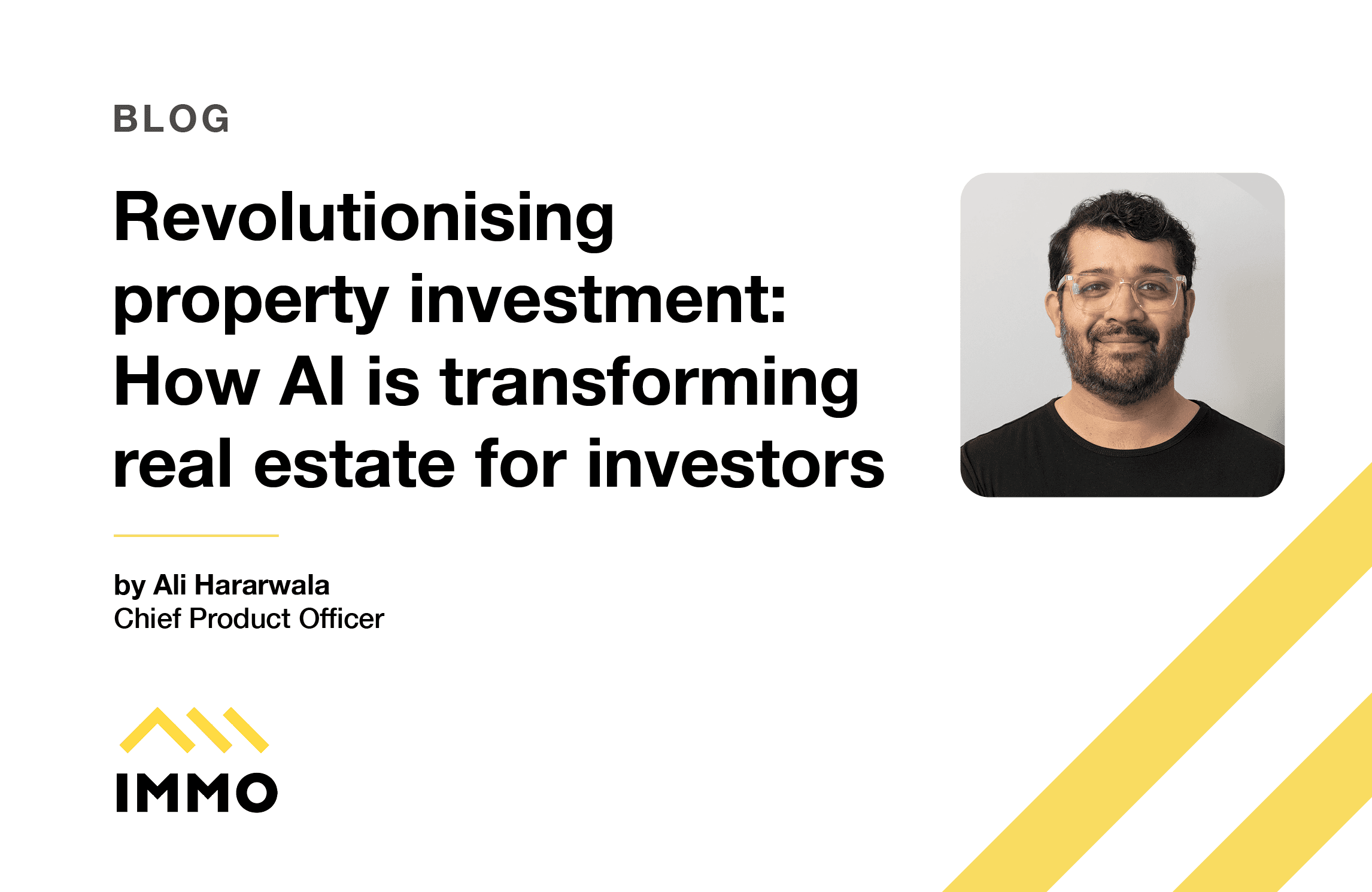AI
Revolutionising property investment: How AI is transforming real estate for investors
Jul 11, 2024
By Ali Hararwala, Chief Product Officer at IMMO
The European housing market faces numerous challenges, from a chronic shortage of affordable homes to escalating energy costs and substandard living conditions. Traditional real estate practices have struggled to keep pace with these issues, often leading to inefficiencies and missed opportunities.
However, the advent of advanced technologies, particularly artificial intelligence (AI), offers a transformative approach to property investment. Leveraging AI allows investors to gain deeper insights, streamline processes, and make more informed decisions, ultimately driving a more efficient, lucrative and sustainable real estate market.
Here is why AI in property investment has the potential to reshape the industry for the better…
AI-powered investment opportunities
The use of generative AI and AI assistants in property acquisitions can help identify and connect investors with high-potential prospects, making it an invaluable resource in addressing Europe’s housing crisis. By processing and analysing property listings and vast amounts of data, AI helps enhance efficiency and accuracy, filter unsuitable leads and uncover overlooked opportunities for investors.
For example, in the Single-Family Rentals (SFR) market, which comprises 98% of Europe’s residential sector, AI streamlines managing dispersed stock portfolios, traditionally a resource-intensive challenge. By automating these manual processes through the likes of OpenAI’s GPT, it becomes feasible to scale these multi-residence investments.
AI-driven insights also clarify the potential return on retrofitting projects. Historically, the lack of transparent data deterred investors from retrofitting. AI bridges this gap by providing data-driven insights into retrofitting outcomes, encouraging investment in existing housing stock. This is crucial, given that 25% of the UK housing stock is substandard, and 12% of housing conditions represent a category 1 hazard.
Efficiency in property acquisitions
The traditional property acquisition process often involves extensive manual labour and time-consuming evaluations. AI transforms this process by introducing efficiency and precision, enabling investors to make better and faster decisions.
By leveraging Conversational AI and virtual assistants, investors gain real-time, data-driven insights into geographical specifics, property dynamics, and local community factors. This immediate access to detailed information accelerates the research phase, enabling swift movement from ideation to investment.
Traditional methods of finding comparable properties and estimating rental yields rely heavily on manual processes, prone to inefficiencies and inaccuracies. AI algorithms, such as those used by IMMO’s CompsAI, automatically identify the most relevant comparable properties for a given asset. This technology significantly reduces the time and effort required for analysis, providing faster and more accurate rental yield estimations. Consequently, investors can make more informed decisions, maximise returns, and streamline operations.
AI in property acquisitions also benefits investors through predictive analytics. AI systems can forecast market trends, rental growth rates, and potential property value increases, allowing investors to anticipate changes and adapt their strategies accordingly. This predictive capability is particularly valuable in volatile markets, where staying ahead of trends can significantly impact investment outcomes.
Intelligent pricing and market analysis
Accurate pricing and market analysis are critical for successful property investment. AI transforms this area by providing highly detailed, data-driven insights previously unattainable through traditional methods.
AI and ML are used together to processes high volumes of data for real-time market analysis and dynamic pricing models. Investors gain access to current market data, historical trends, and demand patterns, offering a comprehensive market understanding. This detail enables informed investment decisions, reducing mispricing risks and aligning investments with market conditions.
AI algorithms compare numerous properties simultaneously, providing insights into price relativity and renter populations. This helps investors understand the competitive landscape and position their properties effectively. Additionally, AI predicts future market movements, allowing investors to stay ahead and capitalise on new opportunities.
The future of AI in real estate investment
The future of real estate investment lies in integrating AI technologies across the industry. From intelligent pricing models to automated property management, AI revolutionises the way investors make their strategic decision, achieving financial success and positive societal impact.
Harnessing AI's power can create a more efficient, sustainable, and inclusive housing market that meets all investor needs. This proactive approach ensures readiness to capitalise on new opportunities and navigate challenges, as well as allowing investors to deter from administrative tasks and focus on what really matters. As AI continues to evolve, it will be a driving force behind the industry's growth.


